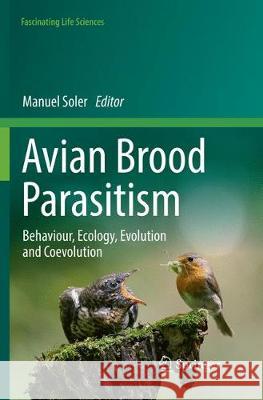Avian Brood Parasitism: Behaviour, Ecology, Evolution and Coevolution » książka
topmenu
Avian Brood Parasitism: Behaviour, Ecology, Evolution and Coevolution
ISBN-13: 9783030103217 / Angielski / Miękka / 2018 / 574 str.
Kategorie:
Kategorie BISAC:
Wydawca:
Springer
Seria wydawnicza:
Język:
Angielski
ISBN-13:
9783030103217
Rok wydania:
2018
Wydanie:
Softcover Repri
Numer serii:
000799451
Ilość stron:
574
Oprawa:
Miękka
Wolumenów:
01











